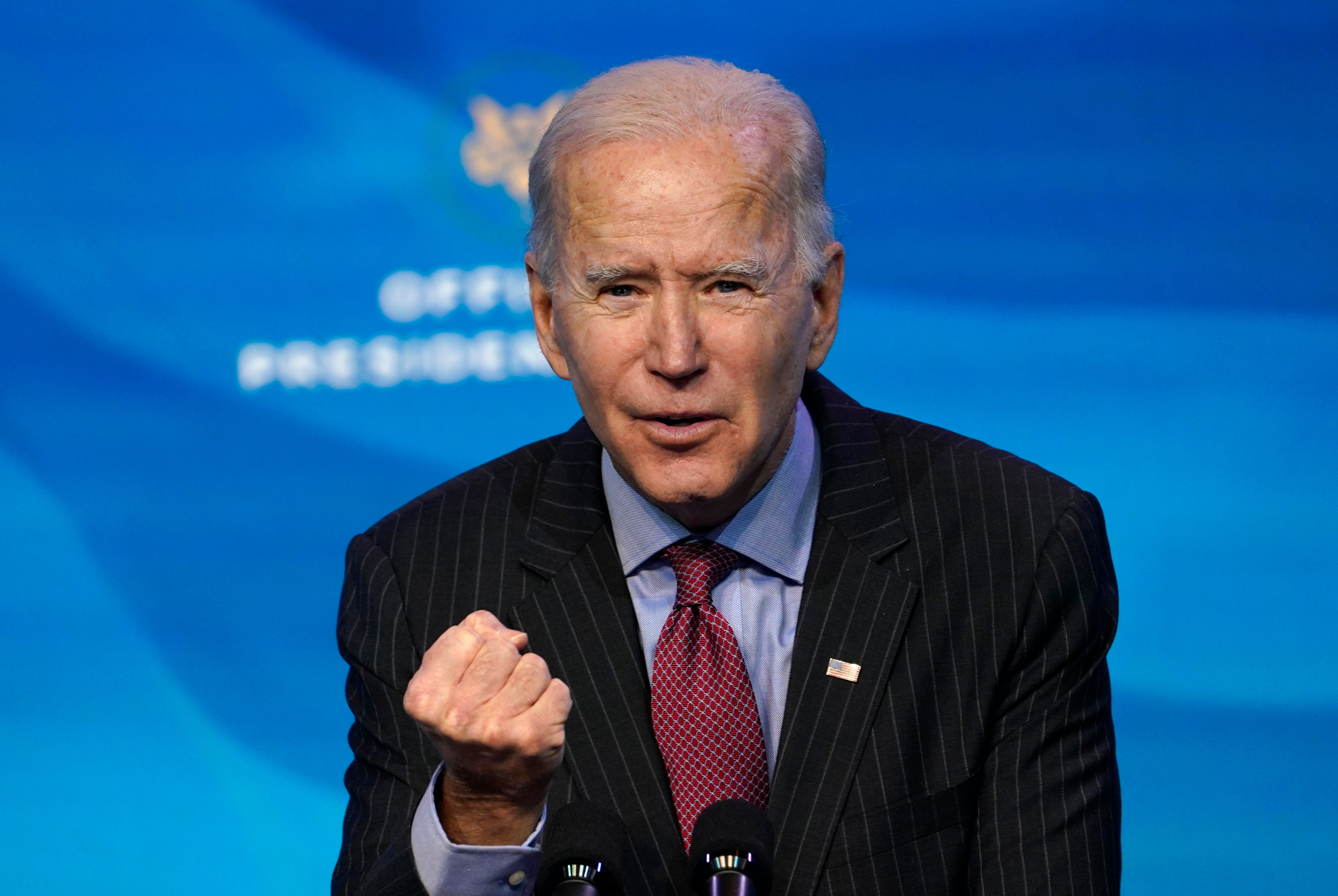Advocacy group: Biden should revamp US human rights policy
Human Rights Watch is calling on President-elect Joe Biden to bring “fundamental change” to U_S_ policy on human rights and allow criminal investigations of President Donald Trump to “show that the president is not above the law.”

Your support helps us to tell the story
From reproductive rights to climate change to Big Tech, The Independent is on the ground when the story is developing. Whether it's investigating the financials of Elon Musk's pro-Trump PAC or producing our latest documentary, 'The A Word', which shines a light on the American women fighting for reproductive rights, we know how important it is to parse out the facts from the messaging.
At such a critical moment in US history, we need reporters on the ground. Your donation allows us to keep sending journalists to speak to both sides of the story.
The Independent is trusted by Americans across the entire political spectrum. And unlike many other quality news outlets, we choose not to lock Americans out of our reporting and analysis with paywalls. We believe quality journalism should be available to everyone, paid for by those who can afford it.
Your support makes all the difference.U.S. President-elect Joe Biden should bring “fundamental change” to U.S. policy on human rights and allow criminal investigations of President Donald Trump the head of Human Rights Watch said on Wednesday.
Executive Director Kenneth Roth laid out a long wish-list for the incoming administration, saying he hopes it will join efforts to improve human rights that other countries have been largely shouldering during Trump's term.
“After four years of Trump’s indifference and often hostility to human rights, including his provoking a mob assault on democratic processes in the Capitol, the Biden presidency provides an opportunity for fundamental change,” Roth said.
The comments come as Human Rights Watch issued its annual “World Report 2021” that chronicles concerns about human rights in more than 100 countries around the world.
The Trump administration has been outspoken on human rights abuses in places like Venezuela and in particular China, going after Beijing for its crackdowns in Tibet, Hong Kong and the western Xinjiang region.
But Trump pulled the United States out of the U.N.-backed Human Rights Council more than two years ago, alleging it has an anti-Israel bias and has been too accepting of governments that regularly violate human rights.
Under Trump, the "occasional U.S. condemnation of human rights in places like Venezuela, Cuba or Iran rang hollow when parallel praise was bestowed on the likes of Russia, Egypt, Saudi Arabia...or Israel,” Roth said.
“To sum it up, Donald Trump was a disaster for human rights," he said, while insisting it “would be naive” to treat a Biden presidency as a cure-all.
Roth cited past policies like George W. Bush’s “War on Terror” as well as intensified drone strikes and surveillance under Barack Obama, saying Biden should look to cement human rights into U.S. policy for the long term.
He said Biden should also “allow justice to pursue its course with respect to Trump to show that the president is not above the law, resisting the ‘look forward, not back' rationale that Obama used to ignore torture under Bush.”
Roth said social media platforms “did the right thing, and perhaps even belatedly" by suspending Trump's accounts, arguing that the president had used them to “encourage white supremacists, to foment hatred, obviously to spread lies about –- the big lie about — his supposed electoral win.”
“But most important: To foment the mob that attacked the Capitol,” he added.
Roth said U.N. Secretary-General Antonio Guterres' term “hasn't been great” when it comes to human rights, faulting him for not naming perpetrators and speaking more often to condemn rights abuses more broadly.
“The real test of Guterres' effectiveness is, you know, does somebody feel the heat from his commentary on human rights?" Roth said. "And the answer generally is no, because he doesn’t name anybody.”
He said he hoped governments — especially the five permanent members of the U.N. Security Council — would "press him on a more outspoken, targeted commitment to human rights.” China and Russia are two of those members — and they often face scrutiny and criticism of advocacy groups like Roth's.